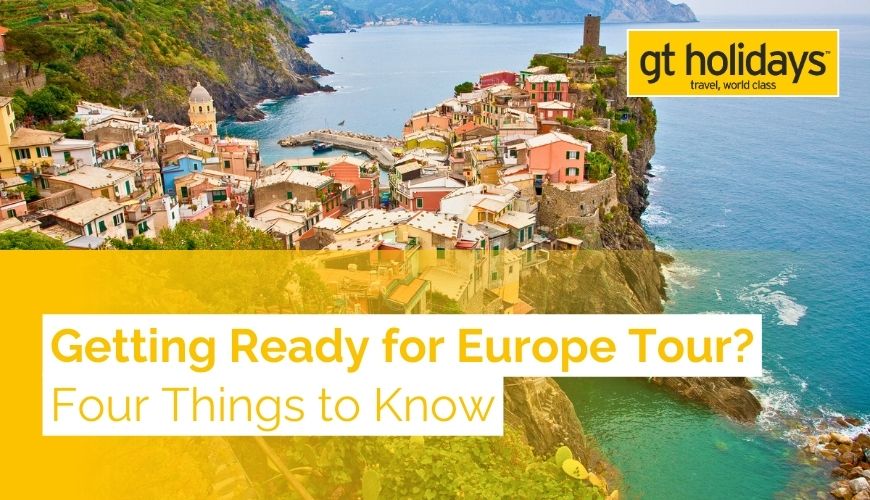Europe is one of the busiest tourist places, with 594.53 billion people visiting in 2022 alone. If you’re planning to travel to the continent and looking to make the most of your vacation, here are a few things you must know before getting ready for a Europe tour.
Make Sure You Have a Schengen Visa
The Schengen Area includes 26 countries where you can travel passport-free and with just one visa. Availing a Schengen Visa allows you to travel anywhere within the zone for 3 months, either for business or holiday. If you plan to stay in the Schengen Zone longer, you must apply for a work or study visa. Requirements include an application form duly filled, recent passport-size photographs, a valid passport with photocopy, round trip reservation details, NOC from company, school, or college, travel insurance, proof of accommodation, proof of civil status, and financial means.
Budget Well For Food
Food is one of the major expenses in Europe. Look for all-inclusive Europe tour packages, including complimentary food and drinks, alcohol, and nightly entertainment. But if you plan to sample local cuisine, ask for tips about cheap eateries frequented by locals. Indian food is generally expensive in Europe, but local food is comparatively cheap. And if you’re living in an Airbnb, you can always buy produce from local markets and make them yourself. Most importantly, avoid restaurants in the touristy parts of the town, especially the ones that advertise their menus in multiple languages. Also, restaurants aren’t open all day, especially in the smaller towns. Most restaurants are closed in the afternoon. And they close early as well.
Europe is Notorious For Hidden Fees
You could end up paying as much as 10,000 INR only for a second checked bag. Remember, nothing is free in the restaurants. You’ll be charged extra in some countries like the Czech Republic and Italy, even for basic condiments like salt, pepper, ketchup, and mayonnaise. And if you’re shopping in the grocery store, you’ll be charged for the carry bag. We have heard stories of customers being charged for ice. In some parts of Europe, there are privately operated beaches where you’ll be charged even for sitting on the sand or using the lounger. If you’re in Italy and ordering seafood, look for the word all’etto, where you’ll be charged by weight (per 100 gm), and that too weighed when raw, not cooked. Don’t ask for an extra plate or other cutlery without asking if you’ll be charged.
Stores Open Late, Close Early, and are Shut in the Afternoon
Midday naps or siestas are not uncommon in European countries like Spain, Italy, Portugal, Greece, Slovenia, and Serbia. Italy and Greece are especially notorious for their laid-back culture. Shops are closed from noon to anywhere from 2- 3 p.m. during lunchtime when it is hot. Locals, especially in smaller towns, prefer to take a light nap. Nothing, including the church, is closed during these hours.
In Germany, shops close at 6.30 pm on weekdays and 2 pm on Saturdays, except for the first Saturday. And they don’t reopen until Monday morning. And in England, a complicated patchwork of local and national laws makes it difficult to determine when shops will open or close. For instance, while shops must close by 8 pm, they can be open until 9 pm one day of the week. In Bath, shops close at noon on Mondays and Thursdays. But in Statford-on-Avon, they close early only on Thursdays. In France, while food shops are open on Sunday mornings, they’re closed in the morning on Mondays. Check open and close timings if you’ve chosen a Europe trip package, including smaller towns.
Visit us if you are looking for Europe holiday packages at the best prices.


Comment (0)